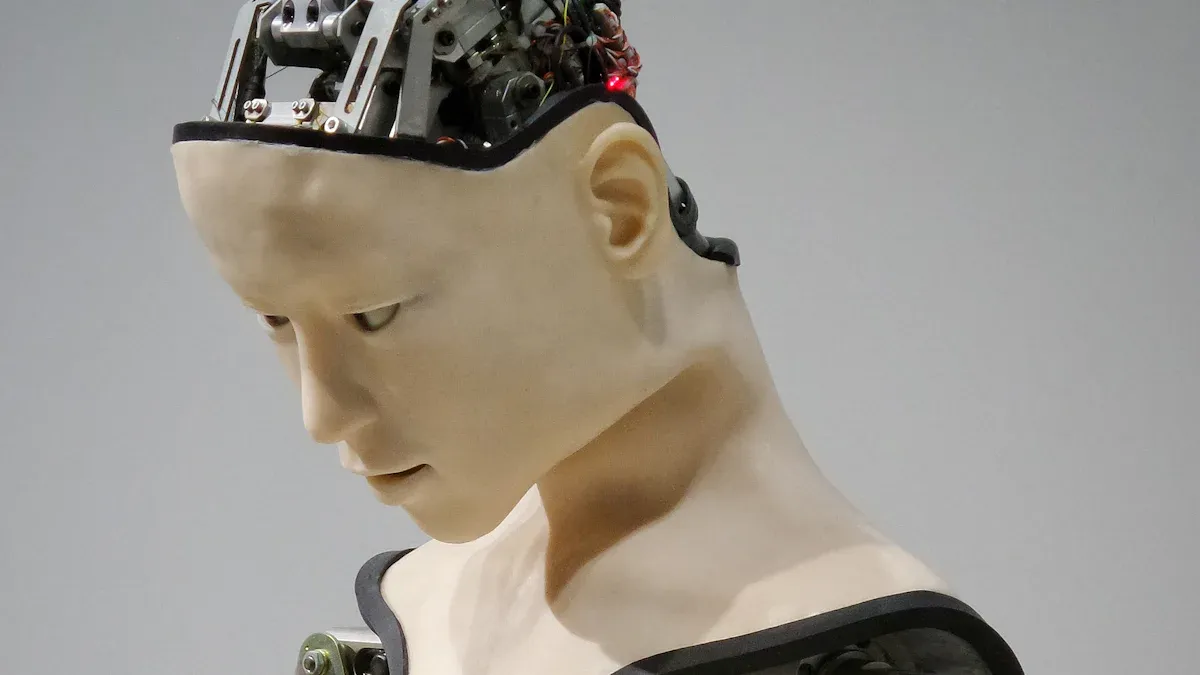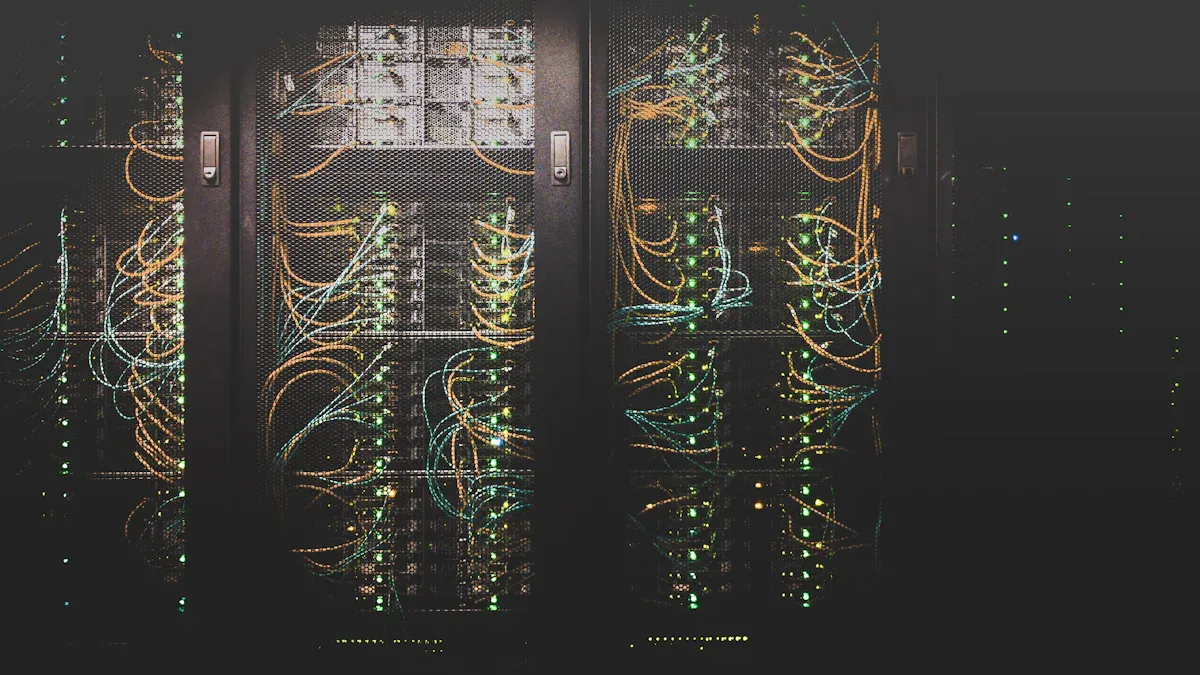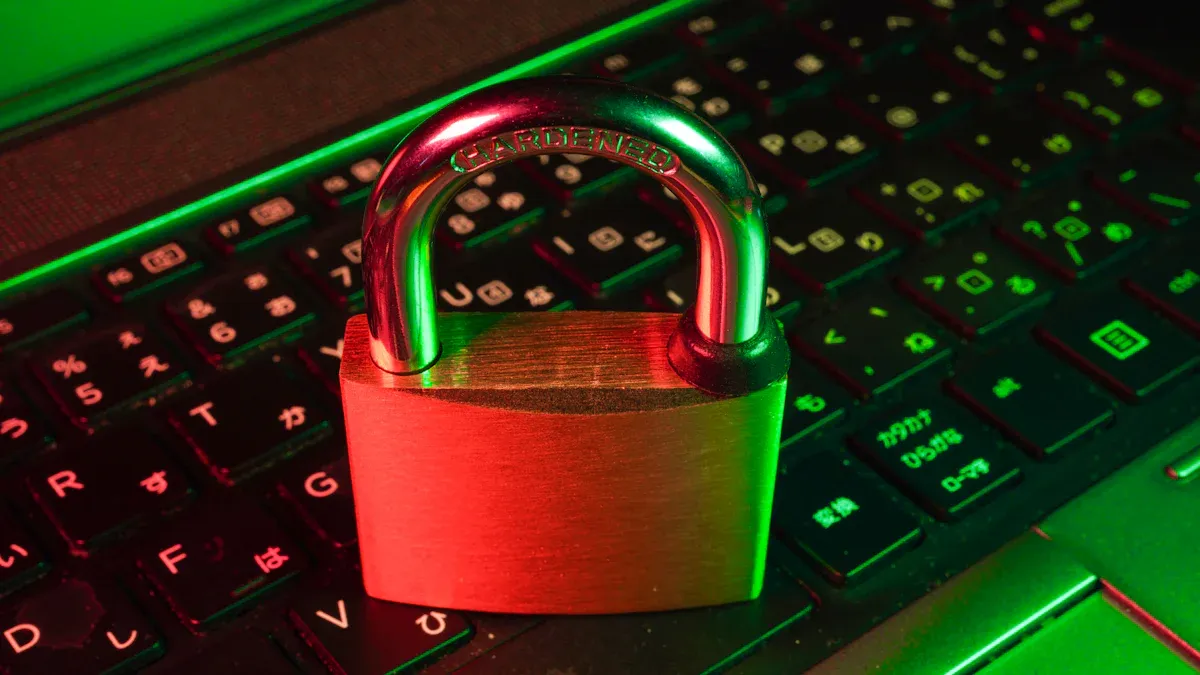Understanding the Legal Risks of AI in Background Checks

Employers now use AI for Automated Background Checks to make the process faster. This technology saves time but comes with legal risks. You need to follow laws, avoid discrimination, and protect privacy. Ignoring these risks can lead to lawsuits, damage your reputation, or result in fines. Understanding the problems with AI for Automated Background Checks helps you use it safely. This safeguards both your company and job applicants.
Key Takeaways
AI makes background checks faster, helping employers hire quickly and well.
Obeying laws like the Fair Credit Reporting Act avoids legal trouble.
Check AI tools often to stop bias and follow hiring rules.
Keep private data safe with encryption and collect only needed info.
Using AI with human review makes hiring fairer and more accurate.
Benefits of AI for Automated Background Checks

Enhanced Efficiency
Simplifying repetitive tasks
AI makes repetitive tasks easier and faster to handle. You don’t need to go through stacks of papers or check details by hand. AI tools can do these jobs quickly and accurately. For example, they can scan resumes, check job history, and look at criminal records. This gives you more time to focus on important work.
Speeding up hiring
AI helps you hire faster by collecting and analyzing data quickly. It cuts down the time it takes to review applications. This means you can decide on candidates sooner without lowering your standards. Hiring faster also helps you get great employees before other companies do.
Better Decision-Making
Avoiding human mistakes
AI reduces mistakes by making processes consistent and reliable.
It finds errors and patterns that people might miss.
AI checks data from many sources with great accuracy.
It prevents common mistakes like typing errors or wrong calculations.
With AI, you can feel confident that your hiring choices are solid and fair.
Using data for smarter choices
AI uses advanced tools to study lots of information and find trends. It helps you see risks and make better decisions. This way, you can be sure candidates meet your company’s needs.
Saving Money
Cutting costs
AI lowers the cost of checking candidates by up to 75%. It saves time and reduces the need for extra workers. Catching fake information early also avoids lawsuits and money problems, saving even more.
Handling many applications
AI can manage a lot of applications at once without extra effort. Whether hiring for a small team or a big company, AI works smoothly. It keeps quality high while keeping costs low.
Legal Risks of AI in Background Checks

Compliance Challenges
Following the Fair Credit Reporting Act (FCRA)
AI tools for background checks must follow the FCRA rules. This law ensures hiring decisions use fair and correct information. Breaking these rules can cause lawsuits and big fines. Companies that follow FCRA have fewer legal problems, about 25% less. Make sure your AI follows these laws to avoid trouble.
Following Equal Employment Opportunity (EEO) Rules
EEO rules stop unfair treatment in hiring based on traits like race or gender. AI must not favor or harm anyone because of these traits. Following these rules helps prevent bias and keeps hiring fair.
AI Discrimination and Bias
Problems with biased AI in hiring
AI can show bias if it learns from unfair data. Even removing sensitive details doesn’t always fix this issue. AI might guess these details from other data. Predictive bias can also happen, favoring some groups unfairly.
Examples of unfair AI outcomes
A lawsuit showed AI gave unfair advantages to certain groups.
This case proves AI can harm protected groups, causing legal issues.
Lack of Transparency
Issues with unclear AI decisions
Some AI systems don’t explain how they make choices. This creates risks because employers can’t defend their decisions. Without clear reasons, proving legal compliance is hard.
Problems with secret decision-making
Hidden processes make it tough to ensure fairness. Private companies often keep AI details secret. This can lead to lawsuits and harm your company’s image.
Privacy Concerns
Risks of mishandling sensitive personal data
Using AI for background checks means handling private information. This includes social security numbers, addresses, and job history. If this data is shared wrongly, it can cause harm. For example, it might hurt someone's reputation or lead to money problems.
Protecting privacy must be a top priority. Make sure your AI tools follow strict rules for managing data. Check often how your systems collect, store, and use information. These steps help prevent mistakes or misuse of personal details.
Potential for data breaches and unauthorized access
AI systems can be attacked by hackers. They target databases with private information. A single hack can expose many records, causing identity theft or fraud. This harms applicants and damages your company’s image.
To stop breaches, use strong cybersecurity tools. Encrypt private data and limit access to trusted staff. Update your systems often to fix weak spots. These actions show you care about privacy and keeping data safe.
Tip: Teach your team why data security matters. A trained staff helps avoid leaks or breaches.
Mitigating the Legal Risks of AI
Human Oversight
Mixing AI with human checks for fairness
Using only AI for background checks can cause mistakes or bias. Adding human review makes results more accurate and fair. Studies show that when humans check AI results, outcomes improve a lot. AI does simple tasks, while humans handle harder decisions. This teamwork helps avoid unfair hiring and keeps things balanced.
Tip: Have trained HR staff check AI results. This ensures decisions match company rules and legal needs.
Teaching HR teams to spot AI mistakes
HR teams are key to finding AI errors. Training them about AI systems helps them catch problems like wrong data or missed details. For example, they can notice when AI misunderstands information. Well-trained teams fix these issues quickly and keep things fair.
Following Rules and Laws
Doing regular system checks
Checking AI systems often helps follow hiring laws. These checks find problems and ensure rules like the Fair Credit Reporting Act are followed. For example:
Check if AI uses correct and legal data.
Review hiring choices to meet Equal Employment Opportunity rules.
Companies that do regular checks face fewer legal issues and gain trust.
Asking legal experts for advice
Legal experts help with tricky rules and laws. They make sure your AI follows current laws and adjusts to new ones. Getting their advice lowers risks and shows your company values fairness and honesty.
Making AI Clearer
Using easy-to-understand AI systems
Clear AI systems show how decisions are made. This builds trust with applicants and follows the "right to explanation" rule. Easy-to-follow AI also helps find and fix mistakes, making hiring fairer.
Explaining AI use to applicants
Telling applicants how AI is used builds trust. Share what data is collected, how it’s checked, and safety steps taken. Being open shows you care about fairness and respect their privacy.
Strengthening Data Privacy
Keeping sensitive data safe with encryption
It’s important to protect private data when using AI for background checks. Encryption turns personal details, like social security numbers or addresses, into a secret code. Only approved users can read this code, making it harder for hackers to steal or misuse the data.
Use strong encryption tools like AES (Advanced Encryption Standard) to keep information safe. AES is trusted because it defends well against cyberattacks. Update your encryption tools often to stay ahead of new threats. Old methods might not protect against modern hacking tricks.
Tip: Encrypt data both when it’s stored and when it’s sent. This double protection lowers the chance of data leaks.
Collecting only the data you need
Only gather the information that is truly necessary. For example, skip financial details if the job doesn’t need a credit check. Focusing on just the needed data reduces risks of mistakes or leaks.
Make a list of the exact details required for each job. For example:
Name and contact information
Work history
Criminal record (if needed)
Delete unneeded data after the hiring process ends. Keeping extra data increases risks and isn’t helpful. This protects applicants and lowers your responsibility for their information.
Note: Following "data minimization" rules shows respect for privacy laws and builds trust.
By encrypting private data and collecting only what’s needed, you can improve privacy. These actions also help follow legal rules and avoid penalties.
The Future of AI Rules and Employer Tips
Getting Ready for New Rules
Preparing for tougher AI laws
AI rules are changing fast to ensure fairness. Governments are making stricter laws for AI systems. Stay updated on these changes and adjust your tools. For example, Colorado now requires companies to reduce bias in AI. Check your AI tools often and update them to follow new rules. This helps you avoid fines and stay compliant.
Watching global AI rules
AI laws differ by country, but global trends matter. Watching these trends can help you stay ahead. For instance, the EU's GDPR sets a high standard for data privacy. Following such rules is key, especially if your company works in many places.
Employer Tips for Using AI
Updating AI tools to avoid bias
AI tools need updates to stay fair and useful. Skipping updates can cause unfair results. For example, one lawsuit showed AI favored certain groups unfairly. Regular updates fix these issues and follow anti-bias laws. The EEOC suggests checking and updating AI tools often.
Audit your AI tools to find and fix bias.
Change systems to meet new laws or public needs.
Setting clear rules for AI use
Ethical rules guide fair AI use. These rules should ban unfair algorithms and promote openness. Clear rules create accountability and trust. This protects your company from legal trouble and builds respect with workers and applicants.
Balancing Progress and Responsibility
Using AI while staying ethical
AI improves hiring but must be used responsibly. Adding human checks to AI decisions ensures fairness. This mix of AI and humans keeps hiring ethical and accurate. It also shows your company values fairness, boosting its image.
Gaining trust with fair AI use
Trust is vital in hiring. Using AI responsibly, like hiding personal details and following laws, builds trust. When applicants see fairness and privacy, they trust your process more. This trust improves your reputation and attracts great workers.
Using AI for background checks helps hire faster and save money. It also improves decisions but comes with some risks. These risks include bias, privacy problems, and breaking rules. Balancing the good and bad is key to keeping everyone safe.
Having people check AI results makes things fairer. Following laws helps avoid trouble. Being open about AI builds trust with job seekers. Learning and using smart methods lets you use AI safely. This protects your company and makes hiring better.
FAQ
What is the biggest legal risk of using AI in background checks?
The main risk is breaking laws like the Fair Credit Reporting Act (FCRA). If your AI system doesn’t follow these rules, you might get sued or fined. Always check that your tools meet legal requirements.
How can AI lead to discrimination in hiring?
AI can copy unfair patterns from the data it learns. For instance, if past hiring data favored certain groups, AI might do the same. Regular checks can find and fix these problems.
Is it necessary to inform candidates about AI use in hiring?
Yes, being open is very important. Telling candidates builds trust and follows laws about disclosure. Share how AI reviews their applications and what data it uses.
How do you protect sensitive data in AI systems?
Encrypt personal information to keep it safe. Only collect the data needed for the job. Update security tools often to stop hackers.
Can AI completely replace human involvement in background checks?
No, humans are still needed. AI can do simple tasks, but people ensure fairness and accuracy. Using both makes better decisions and avoids mistakes.
From recruiting candidates to onboarding new team members, MokaHR gives your company everything you need to be great at hiring.
Subscribe for more information

